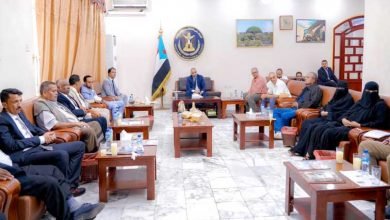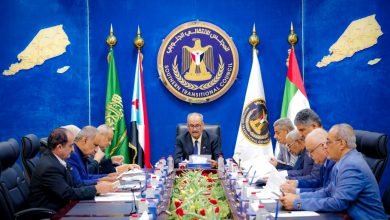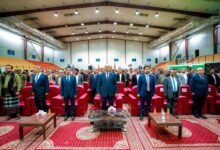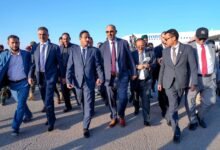STC Assembly Reiterates Categorical Rejection of Any Attempt to Reinstate or Empower Forces Involved in Invasion of the South

SMA NEWS – ADEN THE CAPITAL
The Administrative Body of the National Assembly of the Southern Transitional Council (STC) held its weekly meeting on Wednesday, headed by Mr. Ali Abdullah Al-Kathiri, Chairman of the National Assembly and Acting President of the STC.
In the beginning of the meeting, which was attended by Mr. Issam Abdo Ali, Deputy Chairman of the Assembly, the administrative body reviewed the latest developments in the Southern scene, with a focus on the so-called ‘National Bloc of Political Parties and Components’, indicating that the statement issued by the STC in this regard explicitly expressed its position on such events and blocs and any outcomes or results that may emanate from them.
In this context, the Acting President reiterated the STC’s categorical rejection of any attempt to reinstate or empower those forces involved in the 1994 invasion of the South, and they still refuse to acknowledge the self-evident fact that the cause of the people of the South is a fundamental national cause that requires a comprehensive and just solution, a matter that takes into account deep-rooted causes that extend beyond mere demands or rights-based claims.
The meeting reviewed the overall dire economic and living conditions in governorates of the South, highlighting that the current situation demands the government to implement fundamental solutions rather than short-term measures that have proven ineffective in addressing the deepening crises.
The body discussed a report from the anti-corruption committee that examined administrative and financial corruption in the past and recent periods, reviewing a range of dossiers and issues related to corruption in government sectors, agencies, and state institutions, along with their underlying causes.
The report revealed that corruption practices have become akin to an entitlement for some officials or influential individuals who exploit their positions for personal gain. The report concluded with a series of recommendations and proposals aimed at combating corruption and eradicating its root causes.
The body concluded its meeting by discussing the mechanism of work of the members of the National Assembly committees and the blocs in the governorates, as well as ways to coordinate jointly with the local leadership executive bodies (LLEBs) and the level of the committees’ implementation of their plans, as the appropriate decisions were taken in this regard.







